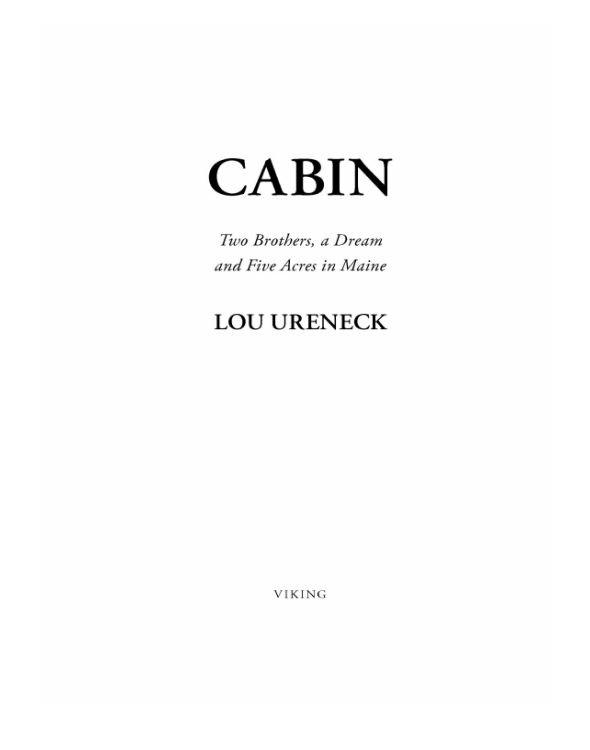
Cabin
Two Brothers, a Dream, and Five Acres in Maine
کتاب های مرتبط
- اطلاعات
- نقد و بررسی
- دیدگاه کاربران
نقد و بررسی

June 13, 2011
Ureneck is no stranger to the outdoors: his first book, Backcast: Fatherhood, Flyfishing and a River Journey Through the Heart of Alaska, was a satisfying and illuminating look at the connections between internal and external landscapes. This follow-up is a continuation of Ureneck's personal journey that will thoroughly satisfy fans of his earlier work. Following a job loss, a divorce, his mother's death, and other bouts of "coming to terms with being the generation within the family that stood between the children and death," Ureneck decides to build a cabin on a piece of "rugged Maine hillside" and make it "my own in the way that the landscape of my boyhood had been my own." Enlisting his brother Paul, an experienced builder, to help with the construction, Ureneck spends two seasons building his simple cabin, and his detailed, almost day-by-day account of that time deftly combines the physical ("Post and beam carpentry owns a vocabulary every bit as rich and arcane as that of nineteenth-century seamanship"), the philosophical ("Has the departure of nature from our lives impaired our ability to make moral decisions?"), and the familial

August 1, 2011
A modern-day Walden with a midlife twist.
"I had been city-bound for nearly a decade, dealing with the usual knockdowns and disappointments of middle-age," writes Ureneck (Journalism/Boston Univ.; Backcast: Fatherhood, Fly-fishing, and a River Journey Through the Heart of Alaska, 2007). "The notion of building a cabin—a boy's dream really—seemed a way to get a purchase on life's next turn." The author was not consciously attempting a Thoreauvian experiment in self-sufficiency. Rather, he was trying to save himself from the wreckage—a painful divorce, the loss of his mother and uncles to death and disease and a major career change—of a life gone awry. Loneliness and despair threatened to engulf him; the only family members who remained were his two grown children, both of whom lived apart from him and his younger brother Paul, a man absorbed by his own trials. Heartsick and confused, he bought a piece of land in the woods of western Maine. There, Ureneck, along with his brother and his brother's sons, spent the latter part of 2008 and all of 2009 constructing the cabin, "employing, as much as possible, old-fashioned wood joinery rather than nails." At first, this "experiment in mental health" was the author's way to enjoy the two things that had been constants in an otherwise fragmented life: Paul's company and a love of the natural world. But as the project evolved, Ureneck realized that the cabin-building process—selecting the timber to use in construction; digging and laying in the foundations; assembling the wood pieces together; securing the final structure both inside and out—was allowing him to not only confront and resolve issues from his past, but also giving him the opportunity to build a mature relationship with a beloved brother he felt he had let down in youth.
Ureneck's story is simple, but it rewards abundantly by affirming the unexpected possibilities for renewal that life offers.
(COPYRIGHT (2011) KIRKUS REVIEWS/NIELSEN BUSINESS MEDIA, INC. ALL RIGHTS RESERVED.)

























دیدگاه کاربران